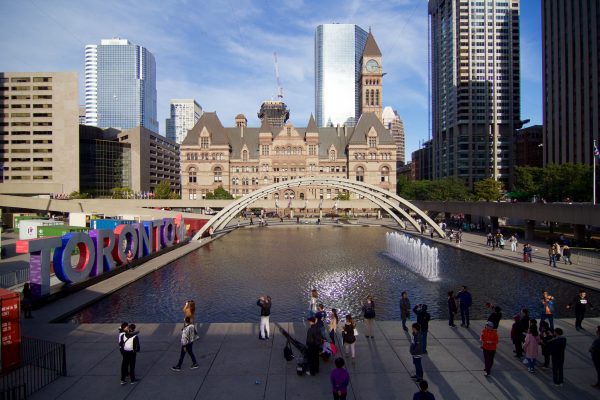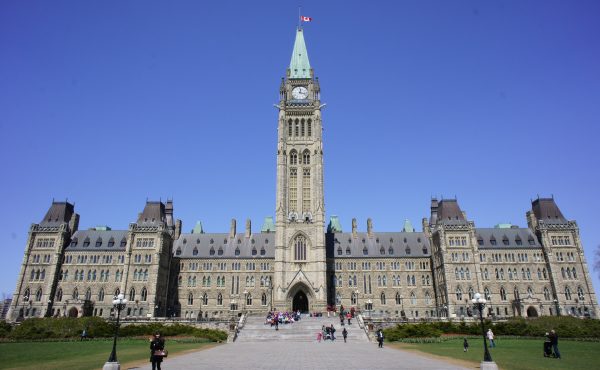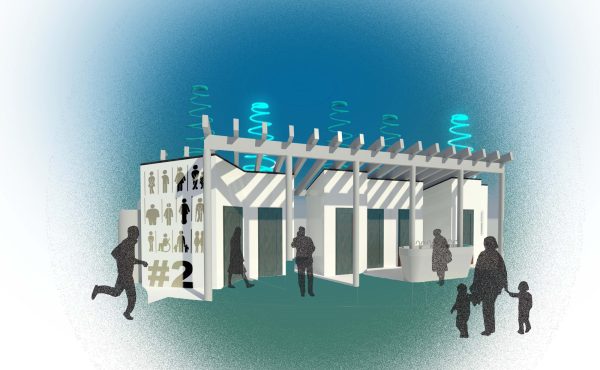On the day after Doug Ford’s Progressive Conservatives passed a law stomping all over local democracy in Toronto, it’s worth pointing out a few key facts about the governance of this city.
The first is that the City of Toronto, as a municipal entity, existed for 33 years – roughly, the space between the Meech Lake Accord and today — before Canada’s founding fathers gathered in Charlottetown to divvy up the work of running the country.
Yes, the division of powers itemized in sections 91 and 92 of the British North America Act confer on the provincial governments extensive authority to manage municipal affairs. But if we’re invoking history, no one should forget that the British colonial administration established the Corporation of the City of Toronto on March 6, 1834, as a self-governing entity, with William Lyon Mackenzie, an obstreperous Scottish journalist, as its first mayor. This isn’t just a chronological curiosity. Independence is deeply embedded in Toronto’s civic DNA, if not the laws of the land, and this order of events should remind us why the city’s elected officials and citizens now need to push back against the high-handedness of the Ford regime.
The second point is that as governance reforms go, Bill 5 completely missed the mark. The real problem with municipal politics in Toronto isn’t the size of council or the duration of debates; rather, the failings flow almost entirely from the corrosive and anti-democratic power of incumbency.
Exhibit A: Giorgio Mammoliti, the sociopathic narcissist who disgraced us all when he appeared this week on Rebel Media, invoking Nazi-style rhetoric to call for the demolition of social housing at Jane and Finch and the “scattering” of its residents “like cockroaches.”
I am not going to waste pixels inventorying Mammolitti’s stunts and lies and outrages, except to note that Ontario Provincial Police fraud and corruption investigators have got him in their cross hairs over an aromatic land deal near Weston and Finch.
Rather, let’s talk about incumbency. Mammoliti has represented that part of North York since 1995 – 23 years, or seven elections, with this fall making eight. When he started, Jean Chretien was prime minister, Bill Clinton was president, and 911 was a number you called in emergencies.
Ward 7, “his turf”, is in many ways typical of Toronto’s inner suburbs. But if we dip into its demographics, several notable anomalies jump out. Ward 7’s population is growing far more slowly than the city’s overall. The area, moreover, has more children and youth than Toronto’s average, and significantly fewer working age adults. As well, Ward 7’s “dependency ratio” – children and seniors as a proportion of the overall population – is substantially lower than Toronto’s, meaning it is a region of the city that requires more services geared at vulnerable populations.
Continuing: Ward 7 has far more single-parent families and large families than Toronto overall. Over 70% of its residents are visible minorities, and almost three in five are first generation Canadians. Compared to Toronto overall, unemployment is higher and household income is lower. Italian-Canadians are the largest ethnic group by place of origin (7.8 % of immigrants), but residents from Vietnam, India, Jamaica, Pakistan, Philippines, and Guyana collectively represent 26% of the population there. If any part of Toronto demands responsive, progressive, and civic-minded representation, Ward 7 is it.
Now, think about Ward 7’s political performance: There are about 53,000 residents, and 32,000 eligible to cast a ballot. The turnout in the 2014 race was 48% — a full seven points less than the city overall. That figure, moreover, was the third lowest among all 44 wards, a detail that suggests something dissuades Ward 7 residents from participating in local elections more than all the demographically comparable inner suburban districts in North York, Scarborough and Etobicoke.
Mammoliti won 6,808 votes, which is about 46% of the total eligible but only one in eight of his constituents. He certainly beat the next closest challenger, Nick Di Nizio, but not by that much (1,200 votes). His 2014 victory, like almost all of the previous ones, was balanced almost entirely on his name recognition and, I’d assume, the bloody-mindedness of a certain subset of voters who enjoy his schtick.
Even setting aside Mammoliti’s pathological craving for attention, there’s simply no way of arguing that 23 years of uninterrupted incumbency, in this community with these outcomes, can be described as anything but an abject failure along every conceivable metric of municipal governance.
The province’s move to cut the size of council will have an impact on incumbency, as Glenn De Baermaeker’s decision to throw in the towel attests. Some, like Mammoliti, will try to hang on for dear life. In fact, I feel reasonably certain that he deployed his latest outrage in a bid to make himself more electable, or at least visible, for the looming run-off against Anthony Peruzza and up-and-comer Tiffany Ford in the merged York West.
But the coming shake-out of long-haul councillors – good, bad, and indifferent – certainly shouldn’t be seen as a reduction in the currency of name recognition in Toronto’s municipal politics. The next crop will be also able to exploit the benefits of the incumbency advantage for as long as they choose.
I have wondered for several years why we don’t have term limits – a three-term limit would seem reasonable, with 12 years more than sufficient for a new councillor to get established, advance local projects, and see them through. But then enough already.
It’s true there are long-serving councillors, on all points of the political spectrum, who do right by their constituents. But highlighting the good apples misses the point. The city’s democratic institutions by rights should reflect its social make up. Toronto is one of the most socially and culturally dynamic cities on earth, yet it is encumbered with a rigid, non-replenishing form of local government that allows political parasites like Mammoliti to survive, term after term after term.
With apologies to the ranked ballots folks, term limits is the magic bullet reform that would blow open local government to new voices. That’s the fix the provincial government desperately needed to make, and then failed utterly to deliver.
Instead, we will continue to contend with idiots spewing fascist dog whistles.






13 comments
I have to object to your use of the term idiot. It doesn’t go far enough.
May I suggest your last sentence read, “Instead, we will continue to contend with strutting buffoons spewing fascist dog whistles.”
Although most politicians are average, I wouldn’t want to enforce term limits because of bad apples. Unlike the workplace, we do have a chance to get rid of under performing politicians. It’s up to the people of the Ward to look out for someone representing their interests and vote them in. It’s up to the people who live there to do something about it
Andrew: your comment overlooks the many structural inequities in local democracy. Homeowners and more affluent communities are adept at organizing and ensuring that they get the representation they want/need. There’s a reason tenants, young people, non-English speakers, etc., vote in lower numbers. The argument about voters taking it upon themselves to elect the right people ignores all this, which is why we need structural remedies to flaws in the system.
Ranked ballots would be a better improvement for city elections.
First of all 4 years is too long a term. Even 3 is. Two years is better. Why? People forget, people move, people are lazy and vote for the name they recognize or don’t bother voting at all.
THEN, you make term limits on top of 2 year terms. Maximum two terms for total 4 years. Then, you MUST step aside for one term. A new person gets one 2 year term after which the prior person has a chance to return OR voters return the new person for a second 2 year term.
This way there is a chance of getting rid of hangers on including the likes of Mammoliti. Good riddance!
Sooo cutting the number of Council is non-democratic but denying a community to elect who they want (no matter how many times you think they should) is not. No hypocrisy or double standards there. Geeze.
Doug Ford does not care a whit about local “democracy” and representation (which we don’t have in Ontario). His interest is in autocracy in order to increase the power of the mayor in order to more efficiently represent the interests of the developers and the 1% with their mega-projects. His interest is in bulldozing social housing as his mouthpiece Mammolitti has articulated.
I don’t disagree that a good discussion and good hard look at terms limits would be an important reform BUT we need to take a hard look at how we elect our council if are serious about improving local representation – i.e. we need proportional representation at all levels of government including municipal government to make as many votes count as possible. With the undemocratic first-past-the-post system currently in use, there’s actually no fixed post. All a candidate needs to do is get one vote more than the person who comes in second. Some people win their seats with less than 30% of the people who bother to show up.
But ranked ballots in single member wards are not the answer (no apologies necessary) and will only reinforce the power of incumbency and continue to leave up to 50% of the voters without a voice in each ward in every election. It is as undemocratic as the system it purports to replace. It is first past the post on steroids.
There’s a lot to discuss if we’re to have a serious discussion but nothing should be written off a priori as the backers of the status quo and ranked ballots in single member wards (including every councillor in the city) have done for years. That would include the inclusion of municipal political parties, financing, ward design, how we elect the mayor, etc.
THIS, THIS and THIS.
This article should be broadcast far and wide. Why isn’t anyone holding this jackass Mammoliti to account? What a disgrace.
We have term limits. It is called an election. If people don’t like what their Councillor is doing, they can get off their backside and show them the door. If people like what their Councillor is doing why not let them stay. The grass is not always greener on the other side.
Excellent arguments for term limits. We should also have a handful of city-wide councillors who would not be ward-specific in their advocacy. Here is a press release the ABC Residents Association put out recently:
FOR IMMEDIATE RELEASE
Reducing the Number of City Councillors is Not the Worst Thing That Could Happen to Toronto
Toronto, Ontario – August 13, 2018 – “Long overdue reform to Toronto city council through the reduction of nearly fifty percent of councillors will initially be difficult, but it’s a good thing overall for the city“, states Ian Carmichael, Co-Chair of the ABC Resident’s association.
Toronto has witnessed the exponential growth over the past twenty years and many of the challenges that accompany this growth are attributable to rapid rates of intensification, the impacts of which are not being experienced uniformly across the city. Planning and infrastructure have not kept up. For some parts of the city this has meant a strain on community and public services, a decrease in affordable housing and a reduction in green spaces.
“Merely downsizing city council will not address these issues and how we manage them. What is required now is bold thinking and leadership to encourage new ideas and greater civic participation.”, adds John Caliendo, ABCRA Co-Chair
While many are focusing on reversing Premier Ford’s decision, the ABCRA co-chairs believe the proposed changes present opportunities beyond just a decrease in the size of city council. Introducing 10-12 city-wide council seats that are chosen by a simple ranked ballot would ensure that these representatives vote and act in the best interests of the entire city and not just in favour of the constituents of a limited geographic boundary. “We believe that having these city-wide representatives would also go a long way to reducing the deadlocks presently impeding our municipal decision-making process and councillors should also be subject to term limits.”, said Caliendo.
With over one-quarter of Toronto’s current councillors holding office for nearly twenty years or more, the opportunities for new faces and fresh voices to challenge incumbents is restricted. These two ideas will help to inject new vigor into city council and enable greater representation from marginalized communities.
Both Caliendo and Carmichael are requesting that change to city council not take place in isolation from the broader and more inclusive dialogue of how Toronto can become a better, more effectively-managed city. According to Caliendo, “This is a time to be open to new ideas and innovative ways of thinking about how we can further democratize the way we are governed. This is also a time to make Toronto municipal politics about the possible, not the impossible.”
About the ABCRA:
The ABC Residents Association is a volunteer organization committed to enhancing the quality of life in our neighbourhood through active participation in municipal issues. Originally established in 1957, we serve the residents living in Toronto’s Yorkville / North Midtown community between Yonge Street west to Avenue Road and Bloor Street north to the CPR tracks. The ABCRA neighbourhood is rich in heritage, character and interest. http://www.abcra.ca
Contact: Kathrin Bohr, ABCRA Communications (647)988-1206; kathrinbohr@gmail.com
Full agreement. There is no reason that 12 years isn’t enough time to make a positive impact in a ward. If you can’t make things better, or at least have a solid plan in place for your ward in 12 years, then you haven’t been doing your job right. The term limit also ensures you have guaranteed new ideas, thoughts and perspectives for council.
ABC Resident Ass’n suggestion for 10-12 “at large” councillors makes a lot of sense. Too often concerns of residents are shoved off by a councillor who doesn’t agree with the complainant. Remember, when Rob Ford was a councillor that was his method. He helped anyone, anywhere. This was not popular with some councillors who took offense to his sticking his nose in their Ward as did bureaucrats who refused to respond. But, his efforts were sure popular with residents! Are you listening Doug?
In some ways, yes, go beyond “mywardopia’. Best eg. is why haven’t we filled in the small gap of Bloor bike lane on Bloor St. E. between Sherbourne and Church for $25,000 and meanwhile, we were all OK, including progressives, to blow a few million on lighting up the Viaduct, with borrowed money too. Even though biking atop the subway is subway relief.
I think it’s Copenhagen has a Mayor for Transportation; one for Waste etc. We sure could use with someone far far far better than where we’ve been, with the PWIC being all NofEglinton.
And 2 year terms; less sure about the term limits. Organize to dump/change.